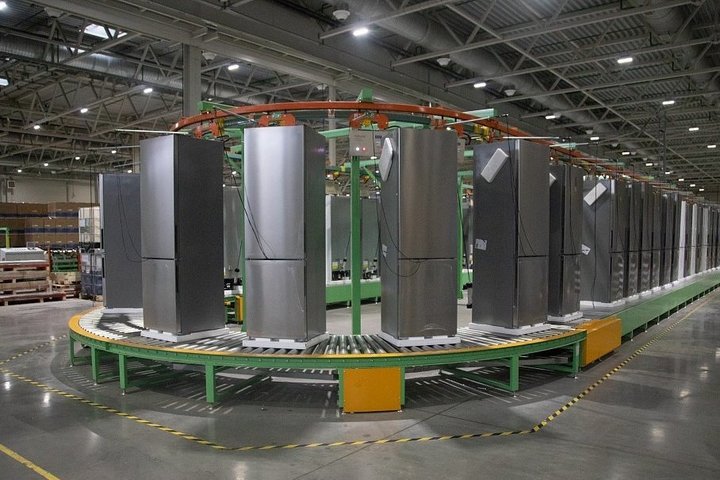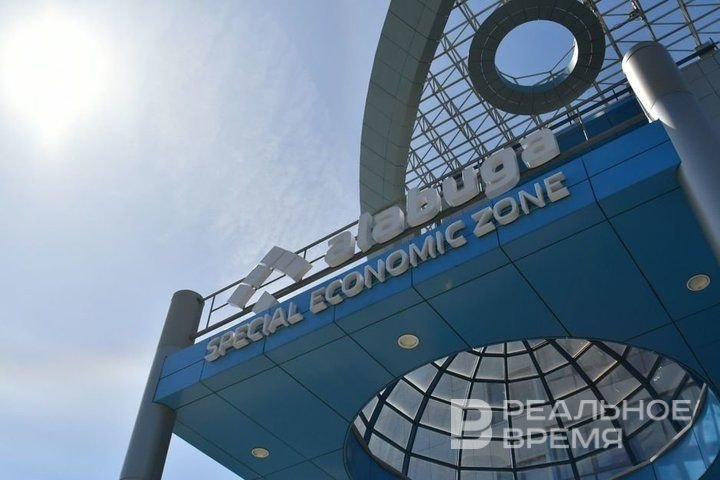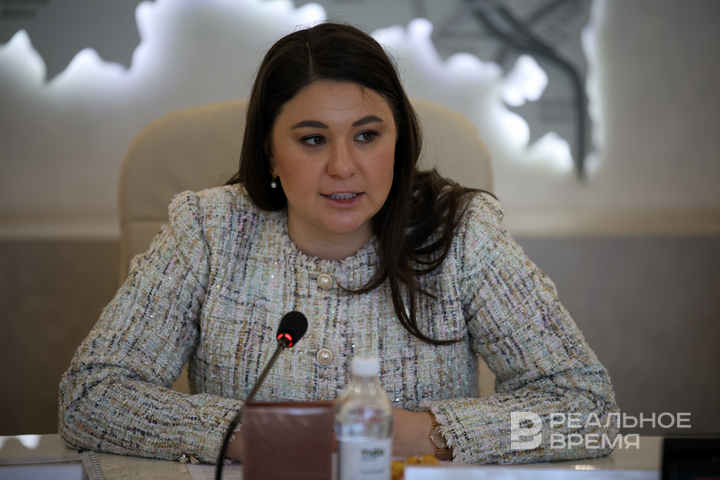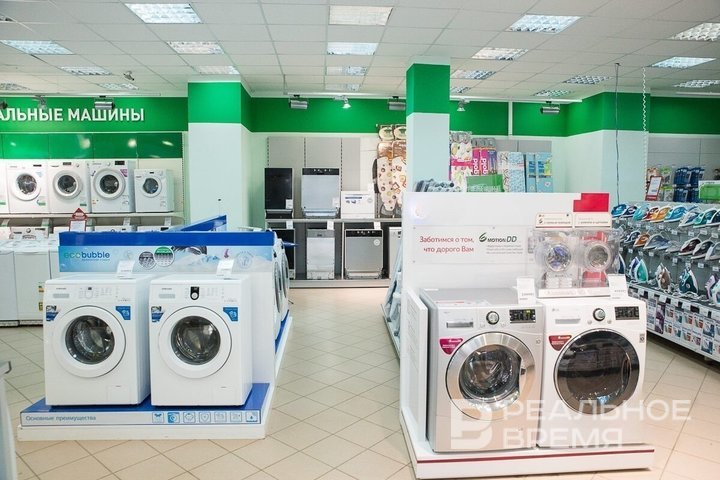Chinese manufacturer Midea moves refrigerator assembly from Tatarstan to Belarus
Midea Group has transferred production out of Russia, and its former plant in the Alabuga Special Economic Zone is facing the threat of bankruptcy

Chinese manufacturer of household and climate appliances Midea Group has completed the process of relocating its production business from Tatarstan to Belarus. The assembly facility has been established in the Brest Free Economic Zone, with a declared capacity of up to 1 million refrigerators per year. Previously, Midea had opened its first plant in Alabuga, but now its Russian partner, Continent Production Solutions PLC, is facing bankruptcy claims. According to experts, the Chinese company changed jurisdiction due to the risk of sanctions being imposed. “Although the Russian market is five times larger than all the EAEU countries combined, the investor opts for safer locations,” noted investment analyst Andrey Kochetkov.
China's Midea plant in Alabuga faces threat of bankruptcy
Midea Group’s former Russian partner for entering the local market — the Continent Production Solutions company (KPR) — is under threat of bankruptcy. Five years ago, it launched the first Chinese refrigerator assembly plant in the Alabuga Special Economic Zone, with an investment of 1 billion rubles, and is now fending off creditor claims.
The Arbitration Court of Tatarstan in April and May accepted lawsuits filed by three of the company’s former contractors: the Moscow freight carrier TEK Operator, the air freight company AsstrA Rus, and polyurethane products supplier Dow Izolan PLC, a joint venture of the American chemical giant Dow Chemical and the Russian firm Izolan. Each of them had previously secured judgments totalling around 200 million rubles.

So far, the largest debt of the Chinese plant has been incurred to the Russian-American enterprise Dow Izolan, operating in Vladimir. Previously, the Russian-American joint venture, which supplied polyurethane systems to the plant in Yelabuga, won a court ruling for the recovery of €140,749.37 in principal debt and €1,749 in penalties, to be paid in rubles at the euro exchange rate set by the Central Bank on the date of payment, according to the ruling of the Vladimir Region court.
“The company’s debt arose for products delivered in 2024,” the company clarified in response to a request from Realnoe Vremya. “Attempts were made to settle the debt out of court. However, the counterparty withdrew from the negotiation process.”
At present, the Arbitration Court of the Republic of Tatarstan has accepted the chemical company’s application for proceedings, which will be considered after the court reviews the claims of another creditor, the company specified.
DNS files lawsuit for nearly 300 million rubles
In total, the arbitration databases of Tatarstan, Moscow, Vladimir, and Primorsky Krai list over 40 lawsuits against the debtor. Among them, a notable case is the claim by the federal Far Eastern home appliance chain DNS. In June, DNS Retail PLC filed a lawsuit demanding the repayment of a 292.8 million ruble debt. Last year, KPR’s revenue amounted to 890.5 million rubles, according to SPARK-Interfax data, but the company suffered a loss of 639.9 million rubles.

Midea Group is one of the world's largest manufacturers of household and climate appliances. In November 2020, the Chinese manufacturer, together with its Russian partner Continent Production Solutions PLC, announced the launch of refrigerator production with a capacity of 350,000 units per year. The assembly was located in the Synergia-2 industrial park, covering an area of 24,364 square metres. Investments amounted to 1 billion rubles, according to the SEZ press service.
“Localisation in the Alabuga Special Economic Zone is important to us in the long term, so we hope for the successful implementation of the project,” stated Midea Vice President Zeal Jiang at the time.
The company Continent Production Solutions was headed by Sergey Volchenkov, who owns 75% through Light Torg PLC. Before Midea Group’s exit, the enterprise recorded revenue of 3.4 billion rubles in 2023. At that time, the company ranked among the top five household appliance manufacturers, following Haier, Beko, Gorenje, and Candy.
Flight to Belarus
Why did a Chinese plant with a well-known brand end up besieged by creditors? As it turns out, the enterprise ceased refrigerator production in Alabuga at the end of last year, when the Chinese corporation Midea Group exited the capital of KPR. According to Realnoe Vremya sources, the Chinese manufacturer began seeking options to relocate its assembly operations from Russia to other countries within the Eurasian Economic Union. Among the CIS countries, the Chinese side ultimately chose Belarus, opting for the Brest Free Economic Zone.
In early June this year, an assembly line was launched on the premises of the former plant in Baranovichi. The resident company is Midea Refrigerator Manufacturing PLC, registered with the participation of Midea Group. This year, the enterprise plans to produce 10,000 refrigerators, with the prospect of scaling up to 1 million units. One of the reasons for relocating production to Belarus, according to sources, is logistical difficulties. Component shipments are carried out only upon full prepayment, and goods are transported via seaports.
“The exit of the Chinese corporation Midea Group is linked to a new development strategy,” commented Taliya Minullina, head of the Investment Development Agency of the Republic of Tatarstan. According to her, there is a queue of interested parties waiting for the vacated premises. When asked whether the Iranian company Entekhab Group, which sought to purchase the plant a year ago, might be among them, Minullina responded negatively. The head of the agency is confident that a new resident will appear at the site by the end of the year. Interestingly, the investment agreement between KPR and the Ministry of Economy has not been terminated, the press service said. Whether this means a possibility of return was not clarified by the ministry.

DNS founder: “I do not recall the market falling this sharply in ruble terms in 30 years”
On one hand, demand for household appliances has dropped to a critical level, retailers note. According to some estimates, sales have fallen by nearly 15%. The reason for this is the sharp reduction in consumer lending amid a high key interest rate. Whereas previously around 50% of purchases were made on credit, this figure has now fallen below 5%.
“Midea as a brand was not very popular,” says Eldar Murtazin, analyst at Mobile Research Group. “Secondly, they miscalculated the production volume, because 350,000 units is very high. There simply was no such demand within the market. Thirdly, from an economic standpoint, it is more profitable to import finished products, despite them being large household appliances.”
On the other hand, the average purchase price of household appliances has risen by 15% over the year. Large household appliances have increased in price by more than 15%. To be specific, it depends on the brand. But on average, the cost of refrigerators and washing machines is rising by 20% annually, while hairdryers and microwaves are increasing by 10% a year, which deters buyers.
“The first quarter of [2025] has ended, and I want to say that I do not recall such a situation in the household appliances and electronics market. Our market is declining. Yes, there have been times when the market fell in units, it could fall in dollars, it could even fall in real rubles (adjusted for inflation). But for the market to fall simply in ruble terms like this, I do not remember it in all my 30 years in business,” wrote DNS owner Dmitry Alekseev in his Telegram channel.

Midea second to Haier?
Perhaps Chinese manufacturers decided not to fight each other on foreign soil and chose to divide spheres of influence? “Absolutely not,” investment analyst Andrey Kochetkov is confident. “Because both Midea and Haier will still sell products in the Russian market, and they will all have to compete for customers. Even being located in the same economic zone would not prevent competition in the Russian market,” he explained.
“In fact, the reason for changing jurisdiction is not related to preferential conditions, as there are no significant differences in taxation. The main reason is sanctions. By locating production in Belarus, the Chinese have more opportunities for safe operations. They have eliminated sanction risks,” he believes. “This is the most important factor that the Chinese manufacturer most likely followed. All other factors became secondary, because a difference of a few percentage points in tax rates does not have significant impact. However, sanction risks create genuinely difficult conditions for Chinese investors, and deter some. Companies seek safer operating environments.”
Of course, Belarus is also under sanctions, but not as severe as those imposed on Russia, he added. Moreover, sanctions against this country are not repeated. At the same time, it provides access both to the Russian market and to the markets of the Eurasian Economic Union. “This is not a division of sales markets, because Russia remains the most attractive. Even if you take all the EAEU markets combined, they are five times smaller than ours,” the speaker noted.
But currently, it is more comfortable for the company to operate in another country. “When the geopolitical conflict ends, production may possibly move back to Russia. From a logistical standpoint, costs are lower here, because transporting goods through Belarus is not the most pleasant experience. However, Belarus still has the ability to receive certain components even from Europe. But the main factor is sanction risks,” he emphasised.